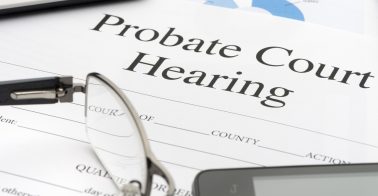Preparing For Estate Planning


Most adults know estate planning is important, but for many of us, it remains a blurry notion for the “someday” list. Here’s help preparing: with clarity on who you will involve, and who you wish to benefit, as well as what assets you anticipate setting aside for your own care and that of others, you will be ready to formalize an estate plan.
Clarifying Who and What
When the phrase “estate planning” pops up, understandably, our minds tend to leap to dollar signs. Be they many or few, carefully planning for them can make a big difference. That’s why before getting too granular about assets, clarifying both who can help administer our financial affairs and who we wish to benefit is essential when preparing for estate planning:
- Know who you would want to handle your financial affairs should you become incapacitated. Many times, people get very ill and their bills remain unpaid because their health becomes a priority and no one can handle their bills. Draft a power of attorney naming someone who you trust to manage your finances in such an event.
- Know who you would want to distribute your assets to in the event of your death. Draft a will or a trust and name a person known as a personal representative (executor or successor trustee) to carry out your wishes in these documents.
If you have minor children, or loved ones with special needs, it is also essential to decide who you would want caring for them in your absence. Don’t forget to consider yourself too: who could care for you–and make health decisions for you in the event of unforeseen circumstances or a capacity decline? As clarity on all your “who” questions takes shape, you are ready to dig deeper into making arrangements for your assets. For example, when gearing up to work with an estate planning attorney it will be helpful to inventory your assets:
- Know what you own, where they are located, and who to contact if there is a concern regarding these assets. Know the value of your assets, now and what they could be worth in the future, and know the contents of your safe deposit box. Provide access to someone whom you trust to access your safe deposit box in the event something happens to you.
- If you are able to list a beneficiary on an asset, you should do so to make sure that your beneficiaries can avoid the probate process. Make a list of life insurance, 401Ks, TOD accounts, etc. so that they are available for your family to know what you have.
Once you have a working list of both “your people” and your assets handy, you’ll likely find it helpful to seek out an estate planning attorney. Though there are plenty of “self-service” estate planning tools available, an attorney will be able to tailor a plan for your unique needs and circumstances. For example, if a trust seems useful, an attorney can help you determine what type, and help you re-title the assets you use to fund the trust.
Helpful To Know: Estate Bonds
Frequently the representative appointed to administer an estate plan, such as an executor, personal representative, or trustee is required to obtain a type of bond, referred to generally as an estate bond. The purpose of an estate bond is to guarantee that debts and assets will be properly handled in accordance with the estate plan as well as state laws and protocols. An estate bond is sometimes alternatively named specifically based on the role of the fiduciary. For example, an estate bond may be referred to as a trustee, executor, personal representative, guardianship or conservator bond.
Colonial Surety Company makes it quick and easy to obtain estate bonds of all kinds. A user-friendly online service allows you to quote and obtain a bond that is instantly available to download or e-file. Fiduciaries in every state can efficiently obtain their estate bonds here:
Estate planning attorneys can help clients secure court and fiduciary bonds with a few clicks on The Partnership Account® for Attorneys. Just select the bond needed, send it to your client for payment, and then download, e-file or print the bond. Our fiduciary bonds include: administrator, estate, executor, guardian, personal representative, probate, surrogate, trustee, conservator and the list goes on. Court bonds include: appeal, supersedeas, injunction, replevin, receiver and more.
Colonial Surety is rated “A Excellent” by A.M. Best Company, U.S. Treasury listed, and licensed for business everywhere in the USA. Our customers have awarded us a 4.8 Trustpilot score.Whenever and wherever you need a bond, trust Colonial: www.colonialsurety.com


